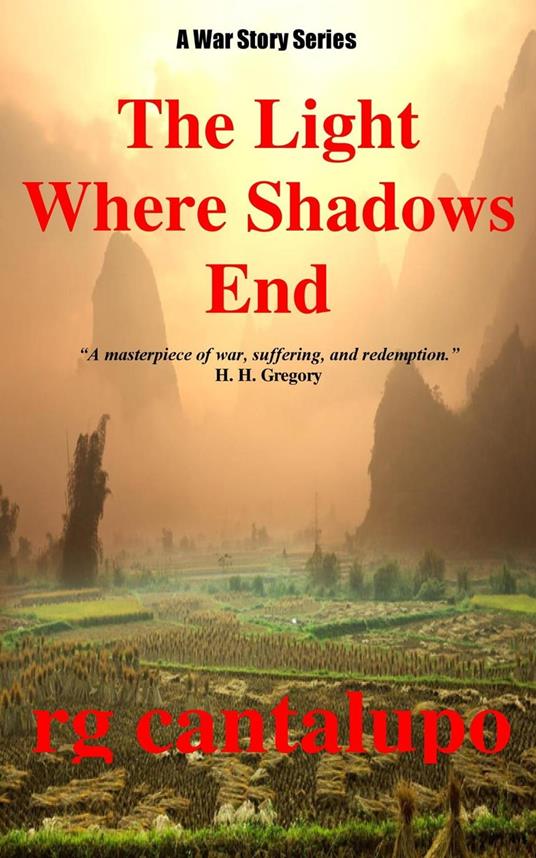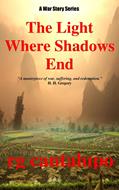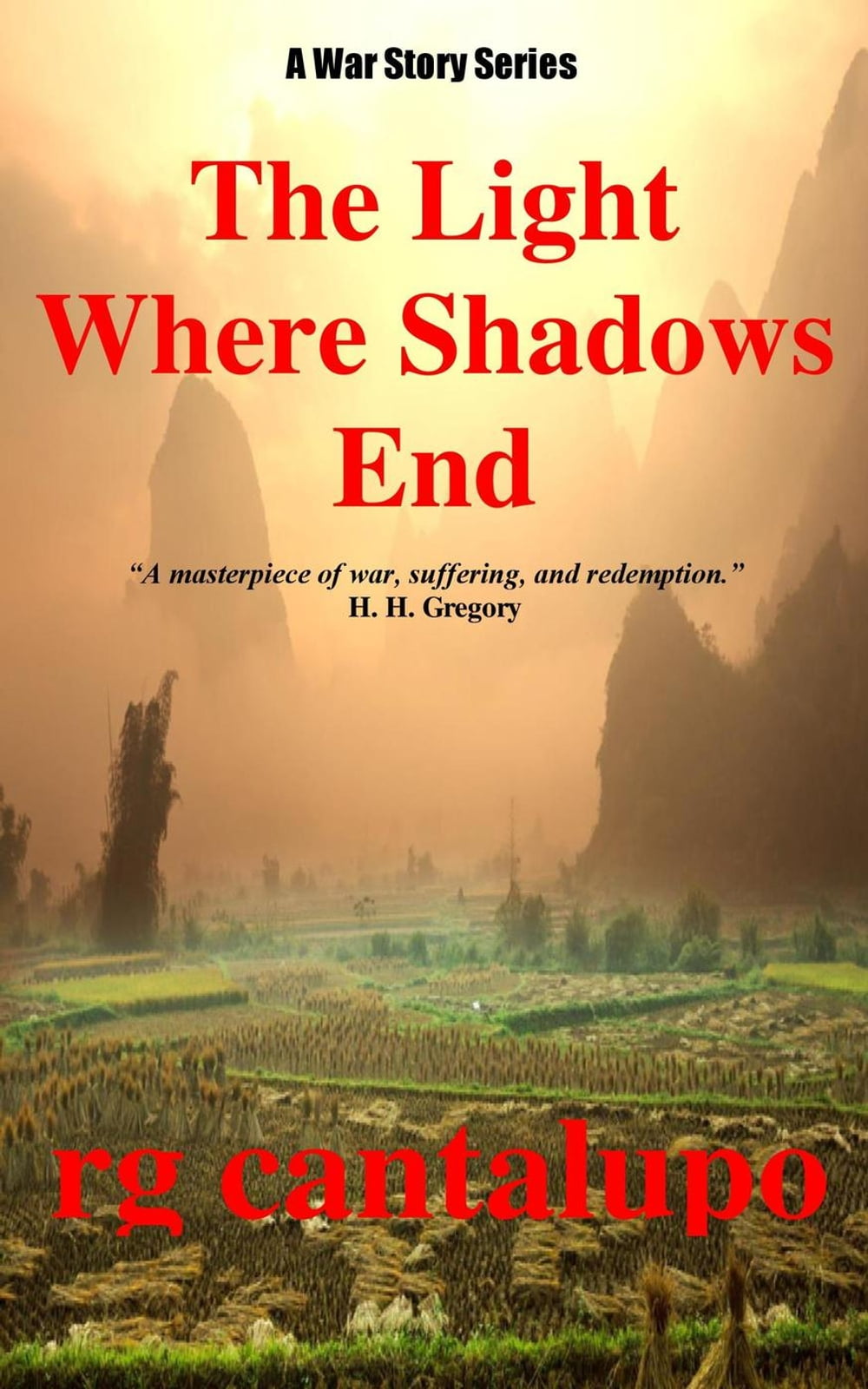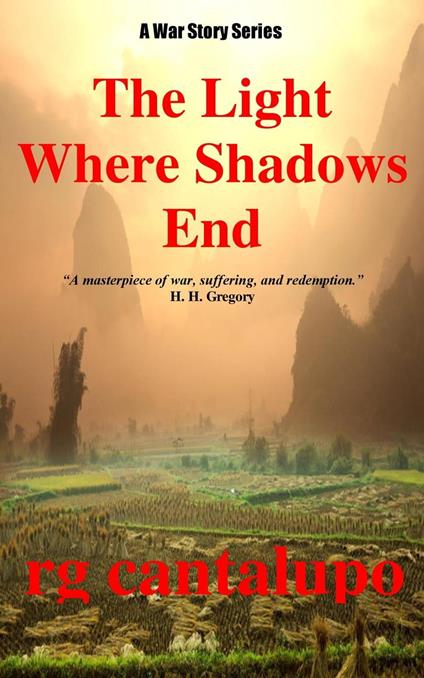The Light Where Shadows End
Author's Note For almost fifty years, ghosts haunted me in night's dead land. They lived inside my blood, rose out of my heart's graveyard, and reached up from the earth to clutch my throat in terror dreams. I was a war criminal. I fired white phosphorous mortars and called in napalm bombs on civilians using weapons banned by the Geneva Convention. I was a war hero. I saved four men's lives by sacrificing my own. I was awarded a Bronze Star with a Combat V for courage under fire and three purple hearts. And somewhere between these two irreconcilable battles was the wreckage of my life—drugs, divorces, deadly despairs. And, over the years, the ghosts multiplied, becoming a company of bad spirits asking me to join them in their graves. In May, 2015, to survive my looming suicide, I returned to the field where I died. I do not know what I expected to find there. Surely not my bones, nor the bones of so many friends and enemies I left behind. Surely not the rice paddy where I lay bleeding, nor the blood-stained elephant grass where a medevac whirled me away. I sat down by the roadside and wiped away silent tears, my face streaked with smoke, dust, and loss. Trang Bang. This is where we ordered villagers to squat down while we "searched and destroyed" their homes. This is where Nick Ut photographed Phan Phuc, the "Napalm Girl", running naked down the highway, the sticky. This is where Lonny, Baby San, Devil and I lay dying, dying not for God or flag or country, but simply because we were "the chosen", draftees offered up from poor black, brown, or white families by an upper-middle-class draft board that didn't want to take sons from their own. Not far away, a film crew from Vietnam TV International recorded my anguish. They came to follow my journey toward reconciliation, and have arranged a meeting with former members of The People's Army, soldiers who lived in Trang Bang and fought against me in 1968-69. We sit at a table outside a government building and shook hands. At first, we were awkward, hesitant, reaching across the table to touch, clasp, and let go. Our handshakes are strong, firm, the kind old soldiers give to compatriots from a distant war, but there is pain as well in our greeting. Gone souls move under our eyes. We smile, but behind our smiles is heartache, sorrow, battles we didn't want but have to remember, shadows walking along the edges of our mouths. Soon, there is nothing left to say. We stand, awkwardly embrace, shake hands again, and say goodbye. I am alone now, my journey done. Tonight, in a Ho Chi Minh City hotel, I will write these final pages. My reconciliation continues. The legacy of leaving hundreds of thousands of unexploded bombs to kill more children; of fourth generation birth defects and genetic mutations caused by our massive spraying of Agent Orange--will not allow for my reconciliation. All I can do is witness and tell, tell as I told the American public when I marched and protested as a member of the Vietnam Veterans Against The War; tell as we told in the Winter Soldier hearings when we admitted to war crimes and atrocities. So I tell. And though there is no reconciliation for the dead, the bodies I counted and carried on my back these many years are gone, their spirits laid to rest. Perhaps reconciliation is not an end, but a beginning, a healing process that starts with compassion and ends with grace. Perhaps this is how angels are born from ghosts; angels whose wings are made of blood and bone; angels who live inside our imaginations and guide us by leaving testaments to truth. I believe this book is such a testament, and hope these words are such a light.
-
Autore:
-
Anno edizione:2023
-
Editore:
-
Formato:
-
Lingua:Inglese
Formato:
Gli eBook venduti da Feltrinelli.it sono in formato ePub e possono essere protetti da Adobe DRM. In caso di download di un file protetto da DRM si otterrà un file in formato .acs, (Adobe Content Server Message), che dovrà essere aperto tramite Adobe Digital Editions e autorizzato tramite un account Adobe, prima di poter essere letto su pc o trasferito su dispositivi compatibili.
Cloud:
Gli eBook venduti da Feltrinelli.it sono sincronizzati automaticamente su tutti i client di lettura Kobo successivamente all’acquisto. Grazie al Cloud Kobo i progressi di lettura, le note, le evidenziazioni vengono salvati e sincronizzati automaticamente su tutti i dispositivi e le APP di lettura Kobo utilizzati per la lettura.
Clicca qui per sapere come scaricare gli ebook utilizzando un pc con sistema operativo Windows



